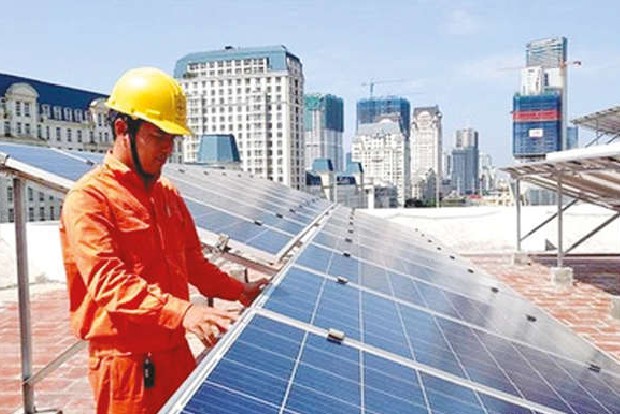Begin typing your search...
Supply from domestic solar plants to be offered Rs 3.12-Rs 3.99 per unit
It also proposed introduction of gross metering system, which allows consumers to sell the power generated through solar plants along with the time-of-the-day (TOD) solar energy feed-in tariffs.

Chennai
In 2012, Tamil Nadu became the first State in the country to announce net metering policy under which the power sold by a rooftop solar plant was deducted from the power that the supplier drew from the grid. But in 2019, it switched to net feed-in tariff system much to the opposition from stakeholders. As of March 31, the State’s installed rooftop solar plant capacity stood at 325 MW against the target of 3,600 MW by 2023.
In the consultative paper, TNERC said that with the Union Power Ministry amending the Electricity (Rights of Consumers) Rules, 2020, it has to issue a generic tariff order on the charges for net metering, gross metering, net feed-in needs to be determined as contemplated in the rules.
The Commission pointed out that the solar power generated during the day time could not be fully consumed by domestic category, which require it for lighting only in the night. So, it added, domestic category deserved net metering facility.
“Hence… in order to accelerate the pace of growth of solar systems in the domestic sector, the net metering facility shall be made eligible for all domestic category consumers to the limit of individual sanctioned load,” it said. Under the gross metering, all consumers with a minimum capacity of one kilowatt to a maximum of 999 KW would be allowed to sell solar energy.
At present, domestic consumers are paid Rs 2.08 per unit under the net feed-in system, said a senior Tangedco official. “The net-metering system which was introduced in the solar energy policy in 2012 was done away with as per the TNERC order giving effect to the new net feed-in tariff,” the official said.
The Commission has released the consultative paper and draft notification on its website seeking comments from stakeholders and public by September 1. “With State Commissions allowed to draft own rules, we have to wait for the Commission to pass its order after eliciting views,” the official added.
Visit news.dtnext.in to explore our interactive epaper!
Download the DT Next app for more exciting features!
Click here for iOS
Click here for Android
Next Story



